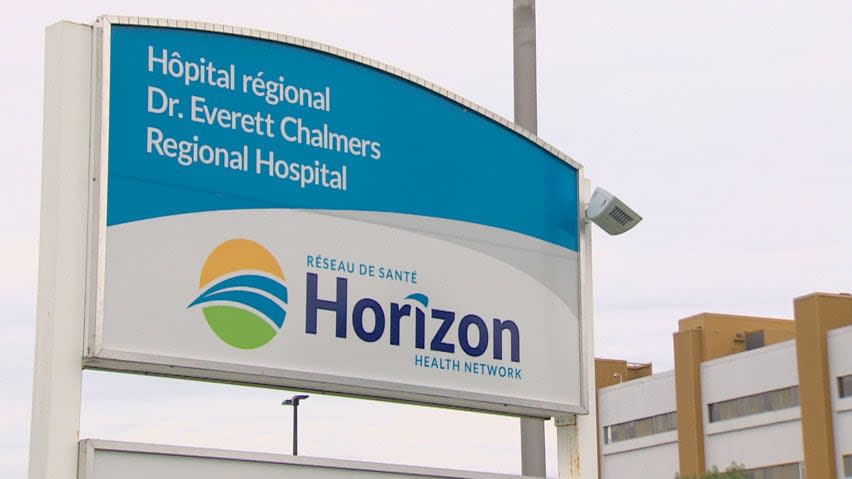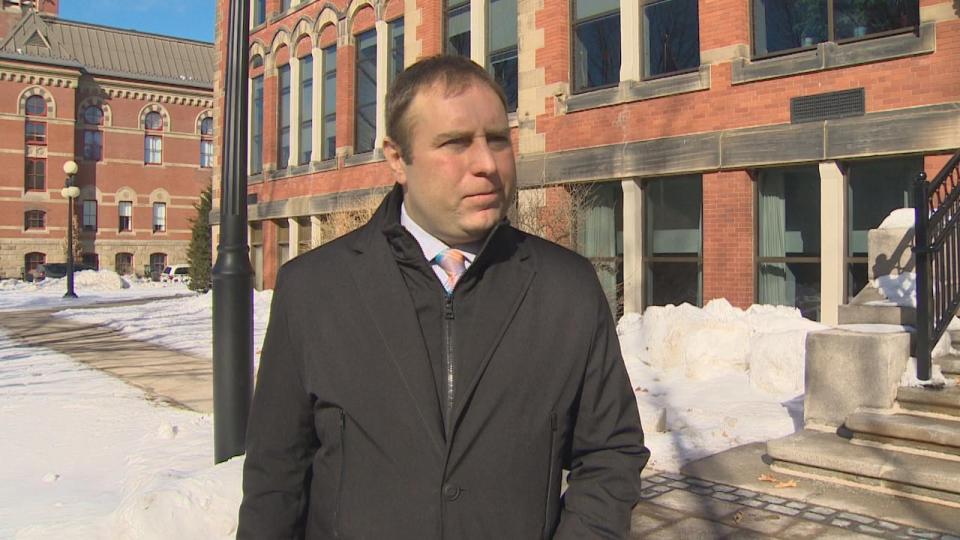Proposed $80K fine against Horizon in asbestos case would go to effort to control toxic dust

A provincial court judge reserved decision Wednesday in the sentencing of the Horizon Health Network on two charges related to possible asbestos exposure of some Fredericton hospital employees over about five years.
The defence and prosecution both recommended an $80,000 penalty, which would be paid to the New Brunswick Construction Safety Association to purchase a new tool to control another hazard in the building industry.
In November, Horizon changed its not guilty pleas to guilty on two of four charges filed under the Occupational Health and Safety Act related to asbestos found at the Dr. Everett Chalmers Regional Hospital.
The health authority pleaded guilty to failing to acquaint employees with any hazard connected to the handling of asbestos, and failing to adopt the code of practice for working with materials containing asbestos between Nov. 7, 2017, and Oct. 6, 2022.
The other two charges were dropped.

Crown prosecutor Derek Weaver said an agreed statement of facts was entered by the prosecution and the defence. (Pat Richard/CBC)
A WorkSafeNB spokesperson previously told CBC News that the asbestos was contained in the "interstitial space" or area between floors — which is inaccessible to the public, patients, and "most employees."
Under the Occupational Health and Safety Act, the maximum a company can be fined is $250,000.
In Fredericton on Wednesday, an agreed statement of facts was entered by the prosecution and the defence, Derek Weaver and Jessica Bungay.
The statement of facts acknowledged that before the asbestos was discovered, Horizon did have a general asbestos management program for all facilities, but didn't have one specific to the Dr. Everett Chalmers Regional Hospital.
Bungay said Wednesday that Horizon has since co-operated with WorkSafeNB to improve asbestos safety, including restricting access to "interstitial spaces."
Safety tool would help get ahead of occupational illness
The penalty proposed by Crown and defence lawyers would see $80,000 from Horizon go toward the purchase of a silica control tool, prosecutor Derek Weaver said. The tool costs around $180,000 total but would be supplemented by WorkSafeNB.
Silica dust is produced from jackhammering or breaking up concrete, Roy Silliker, the general manager and CEO of the New Brunswick Construction Safety Association, said in an interview.
The tool was designed and researched by the association's British Columbia counterpart.
Silliker said New Brunswick has looked into it, but it is an expensive venture for a non-profit.

Jeff Carter, Horizon's vice-president of capital assets, said both sides represented the case accurately and the authority would likely have more to say on Feb. 22. (Pat Richard/CBC)
The tool is a computer program that can determine how much silica dust is being produced and provide occupational safety suggestions based on that information, such as the personal protective equipment that would be adequate, he said.
If acquired, he said, the tool would be available to use by all industries.
According to the Canadian Centre for Occupational Health and Safety's website, crystalline silica is "very toxic" and prolonged or repeated exposure can cause lung damage and may cause cancer if inhaled.
He said with asbestos, people who were exposed to it 25 years ago are now potentially facing the consequences because of a lack of knowledge and PPE back then.
"The worst part of an occupational disease is occupational diseases don't happen right away," he said. "Sometimes it can take 10 or 15 years before it hits your system.
"We don't want to see silica dust become like asbestos."
Silliker said it isn't the first time his organization has been considered for receiving an alternate penalty by a court. He said a few years ago, it was given $10,000 to be used for new fall protection equipment for the classroom and a modified fall protection course.
"To take a fine and put it towards a cause that's going to help people work safer and be in a safer work environment, to me, that's a bonus," he said.
Judge Cameron Gunn reserved his decision until Feb. 22.
Outside the courthouse on Wednesday afternoon, Jeff Carter, Horizon's vice-president of capital assets, said both sides represented the case accurately and the authority would likely have more to say on Feb. 22.

